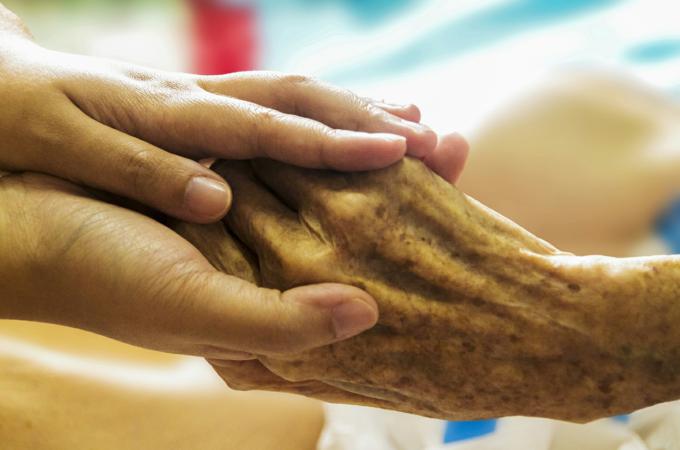Parish Nursing is more than checking blood pressures
On Feb. 7, 1837, a 17-year-old Englishwoman by the name of Florence Nightingale had an experience that changed her life, and, eventually, the lives of countless others. She felt that God had spoken to her and called her to service, although specifically what that service was to be, was unclear to her at first. Over time, she contemplated the works of charity undertaken by religious sisters -- the work of caring for the sick and poor. While such charity work was acceptable for nuns, the role of a "nurse" was frowned upon by society, and not considered to be a noble option for nice young ladies. At that time, hospitals were commonly dark and dirty. The patients suffered from their illness and from the lack of compassionate care. The Spirit called her to ignore the social norms of her time and serve the forgotten ones of her day.
Florence Nightingale changed the image and status of nursing from undesirable work to a noble profession of love and service to others. She did this by meeting the most basic of human needs: she bathed, nourished, nurtured and loved the underserved, meeting them wherever they were suffering, in England and abroad. She carefully recorded her work, thus providing data necessary to make changes to the healthcare system of her time. These efforts contributed to the recognition of Nightingale as the Mother of Modern Nursing.
In the mid-20th century, Chicago area Lutheran minister Granger Westberg and others, seeking a way to reconnect the healing ministry of nurses to the Gospel, collaborated to develop a new specialty of nursing, which Westberg called ''Parish Nursing." He chose the phrase "parish nursing" to acknowledge that this ministry is rooted in the grace of diakonia: that we are all called to follow the great commandment to love God and neighbor. The "Church" is the building and the people, both inside and outside the building.
Nightingale and Westberg are but two examples of Christians responding to the call to provide tender service to others as they live out their unique vocation in their own lives. The Gospels are rich with examples of Jesus's ministry of caring for the ill and infirm. With a tender touch, Jesus heals Peter's mother-in-law who is ill with a fever, and restores hearing to the deaf man and sight to the blind man. With a tender touch and a gentle word, he brings life back to Jairus' daughter, and comforts Mary and Martha as they grieve the death of Lazarus.
In so many ways, nurses share in Jesus' comforting and healing ministry. In the Archdiocese of Boston, many nurses combine their passion for nursing with their discipleship as Christians by participating in parish nursing. Parish nursing is a ''womb-to-tomb ministry," a health promotion, health education, supportive model of nursing for people across the entire lifespan. Parish nursing actions and interventions are many, but they are not what people typically think nursing actions would entail. A non-clinical nursing model, care of the human spirit is the primary goal. Parish nurses take their clinical knowledge, wrap that knowledge in spiritual interventions, and focus on healing, not curing, recognizing that even in the face of illness, people can still be whole. Parish nurses help people find peace in the face of pain, suffering, and brokenness. Presence is our most common intervention, and the greatest gift we have to offer, as we strive to uphold each individual's inherent value and dignity as a person, simply because they are a child of God.
From offering monthly prayer groups for families struggling with addiction, to instructing an elderly man the best sequence of administration of his wife's dementia medications, to visiting the parents of a young victim of suicide, to celebrating the ongoing recovery of one addicted to opioids, to educating teens about the beauty, value and dignity of their own bodies, parish nurses throughout the archdiocese today follow the model of tenderness that Jesus showed us.
Pope Francis tells us that "Tenderness is not weakness; it is fortitude.... Tenderness means to use our eyes to see the other, our ears to hear the other...tenderness means to use our hands and our heart to comfort the other, to take care of those in need.'' That is parish/ faith community nursing and this is the service, the Diakonia, we all are called to share as we build up the kingdom of God.
KAREN WENGER IS A REGISTERED NURSE FROM OUR LADY OF LOURDES PARISH IN CARVER AND IS THE FAITH COMMUNITY NURSING EDUCATOR FOR THE ARCHDIOCESE OF BOSTON WORKING THROUGH THE OFFICE OF CHAPLAINCY.



















